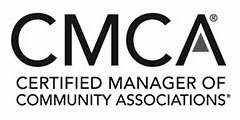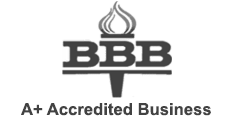Nearly 10 million Americans become victims of identity theft each year, losing $5 billion annually, according to the U.S. Postal Inspection Service. Most identity theft happens online, but four percent of cases involve physical mail theft. Some cases involve theft by postal employees. Postal inspectors investigated 1,514 cases of internal theft in the fiscal year 2013, making 2,876 arrests. Guarding your physical mailbox is an important part of protecting yourself against identity theft.
Understanding Mail Theft
Mailbox thieves typically look for specific types of mail they can use to steal your identity and your money. Mail representing attractive targets for thieves includes envelopes containing checks, paychecks, credit and debit cards, credit card offers, pension and investment account statements, tax returns, medical bills, insurance claims, utility bills, and identification cards.
Identity thieves can use this type of mail for several purposes. Checks can be used for check forgery. Credit card offers and other identifying information can be used to apply for credit cards in your name. Tax returns can be used to intercept your tax refunds, change the return address, and redirect them to a thief’s bank account. One postal employee who was later caught opening greeting cards in order to steal money to support his drug habit.
Guarding Your Incoming Mail
A first step towards protecting your mail from identity thieves is making sure your incoming mail is secure. The longer your mail is left unattended, the more opportunity identity thieves have to steal your mail, so you should get in the habit of checking your mail promptly in order to minimize the window for mail theft. Find out when your mail carrier arrives so you can make arrangements to pick up your mail at the delivery time or have someone else pick it up for you. Getting a mailbox with a key gives you extra protection. If you’re going to be away on vacation, have your postal carrier suspend delivery until you return. Minimize the amount of sensitive mail you receive by using paperless statements for bank accounts and credit cards.
When you get your mail, go through it carefully to make sure you’re not getting any suspicious mail, such as bills for things you never ordered, which can be a sign that someone is using your credit card. Dispose of mail with sensitive information by using a shredder instead of throwing it in the garbage.
If you’re expecting important mail you don’t receive, such as a new credit card or checks, contact your post office. You should also contact your post office if you receive a change of address validation letter you didn’t request, which may be a sign a thief has requested a change in your name in order to intercept your mail. Use an identity theft prevention service such as LifeLock to alert you of any suspicious activity involving your credit cards, and check your credit report once a year.
Securing Your Outgoing Mail
It’s also important to take steps to secure your outgoing mail, which is also a target for thieves. Some thieves regularly patrol neighborhoods searching for outgoing mail, while others use fishing lines or crowbars to retrieve mail from mailboxes. The best ways to secure outgoing mail against these risks are to hand it directly to your postal carrier or to drop it off in a mail slot inside the post office. Never send cash or documents with sensitive information by regular mail. To avoid sending sensitive financial information through the mail, pay your bills online.
What to Do If You Suspect Your Mail Has Been Stolen
If you suspect that your mail has been stolen, report your concerns to your local police and the U.S. Postal Inspection Service. You can call 1-800-ASK-USPS (1-800-275-8777) or use a form on the Postal Inspection Service’s website. You should also check with your neighbors to ask if they have seen anything suspicious. If you or your landlord has a security camera installed, check the footage to see if the camera caught any images of mail theft suspects.








